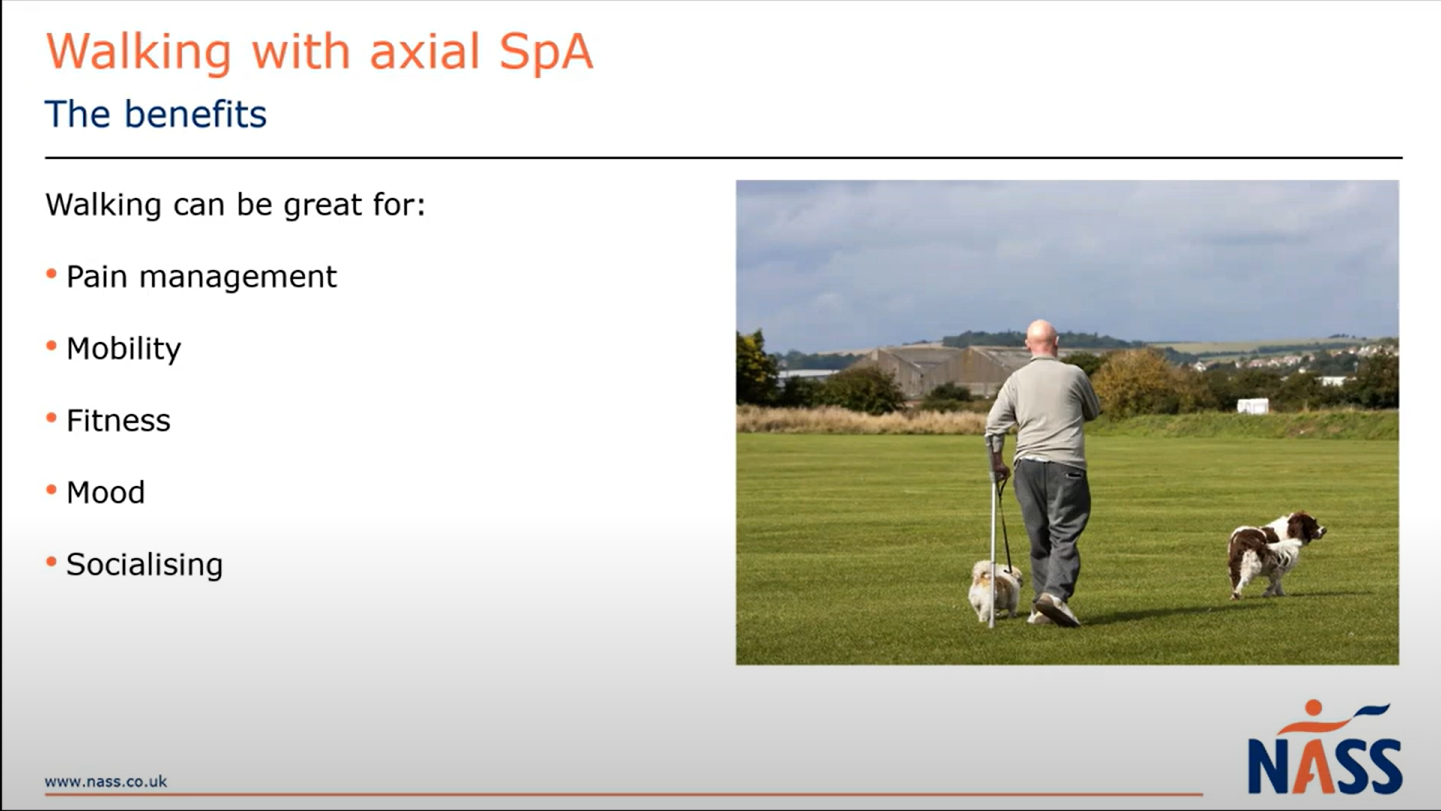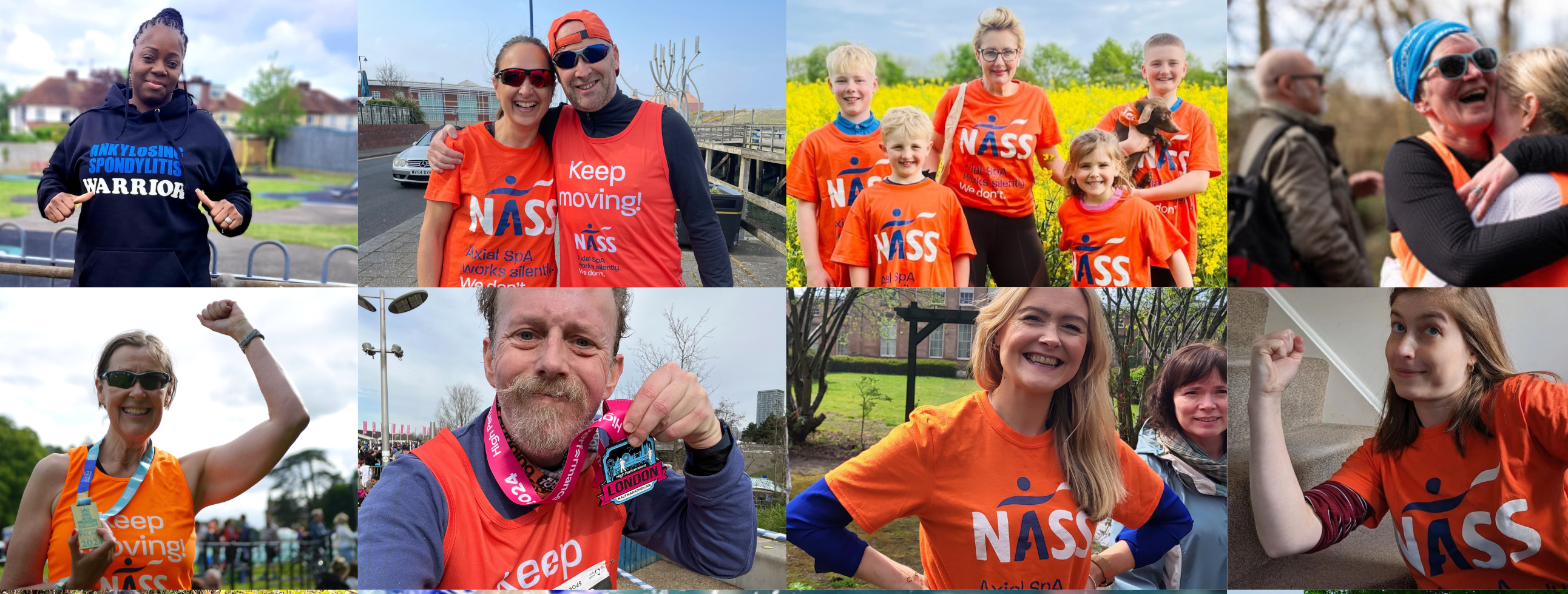
The benefits of walking for axial SpA and how to get started
Watch our video to hear about the benefits of walking for axial SpA, get advice on getting started, and get tips on keeping motivated.
Watch
Every winter, NASS supporters come together to stay active and move more for their axial SpA to raise funds for people living with the condition.
Join our NASS Winter Walkers this January and February to keep warm, stay active and raise funds for people living with axial SpA.
Set yourself a goal to try and achieve this winter – it can be as gentle as a daily 5 minute walk, or a specific distance or step count target. You can even ask a friend to come along for the challenge or take along your furry companion! This is about coming together and doing whatever feels right for you.


Create your fundraising page today and start sharing your journey to get active this winter and raise vital funds to support people with axial SpA.

Watch our video to hear about the benefits of walking for axial SpA, get advice on getting started, and get tips on keeping motivated.
WatchIf you have any questions or would like to learn more about our Winter Walks Challenge 2025, please contact fundraising@nass.co.uk, or call NASS on 020 8741 1515 and press option 2.

Find out why your support really does matter, the impact your support can have, and why your support has never been more urgent.
Find out more1 in 200 of the adult population in the UK have axial SpA (AS). That's twice as many as multiple sclerosis and Parkinson's disease.
Axial SpA (AS) is a condition that affects young people. Symptoms start late teens to early twenties, with the average age of onset being 26.
The current average delay to diagnosis from when symptoms start is 8.5 years, by which irreversible damage to the spine may have occurred.
59% of people with axial SpA (AS) report experiencing mental health problems compared to 25% of those with musculoskeletal conditions overall.